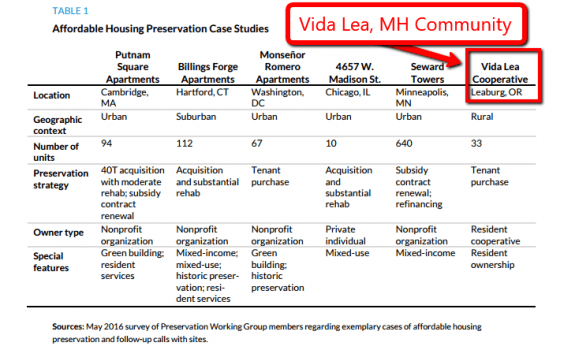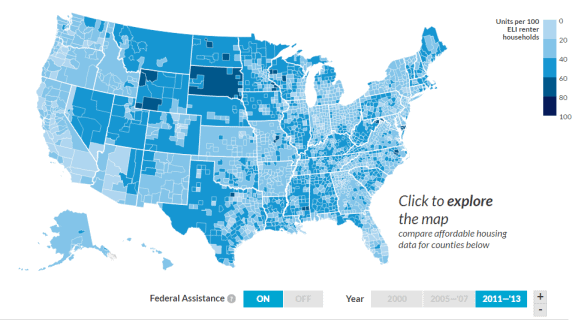
Affordable housing options are becoming less plentiful around the country, but according to Urban Institute researchers, there are ways to sidestep what has become an outright crisis.
The numbers surrounding the lack of affordable housing across the U.S. are staggering. In their map shown at the top left, light colored areas represent less affordable housing options. Only the dark blue areas are more affordable.
Urban Institute research has laid out a handful of ways to avert, or at the very least, minimize the damage being done by the loss of over 2 million affordable housing units in just over a decade.
In this report, the solutions examined all revolve around the idea of preserving the housing that already exists, rather than try to develop more. The report wasn’t anti-development; rather, it focused on examining an alternative option.
Preservation of housing stock tends to be a more affordable option than new conventional construction, even if it might not be as “sexy,” as Urban Institute research associate Mark Trekson puts it.

More importantly, preservation means current residents are less likely to be displaced than they would be in a new construction scenario.
Quoting from the attached report, “Another lesson from these case studies is developer capacity: the bigger a project, the more sophisticated the methods needed—and partners involved—to make it successful.”
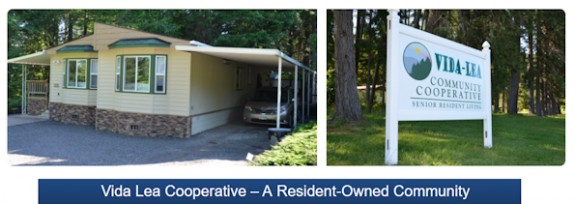
Preserving Manufactured Home Communities
One of the Urban Institute’s roads to more affordable housing featured in their in-depth report linked here features manufactured homes and land-lease communities, like the one in the photo and chart above.
As industry professionals know, manufactured homes are less expensive because of the money saved from less time and labor being used, plus less material being wasted. Not only do people spend less money by living in a manufactured home, but the Urban Institute study suggests they could find themselves with an opportunity to earn money off the land in the communities they occupy.
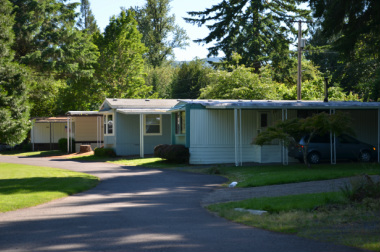
Millions of manufactured homeowners don’t own the land they live on. The majority of the time, that works out fine for residents and for the property owners. But there are times when a community, its owner(s) – and thus its residents – comes to a crossroads.
The Urban Institute explains that places like Vida Lea Mobile Estates in Leaburg, OR witnessed its residents purchase the 33-space community from its owner. The coop/resident buyers turned their leased home sites into a Resident Owned Community (ROC). This model allows its members to not only own their already affordable manufactured home, but to also gain control of the property it was sited upon.
As once-vacant manufactured home-sites are filled, the site fees (aka “lot rent”) generate revenue by leasing out spaces, which further cover operating expenses.
That model turned out to be a successful one of preservation of affordable housing for the Vida Lea Mobile Estates residents. They were able to keep their homes and improve upon them, with repairs to the sewage system and driveways as well as add some amenities like laundry machines and some common areas. Upgrades like those may seem relatively minor in the long run, but the $275,000 spent on those improvements can go a long way towards helping residents not only stay where they are, but also produce additional income for the community, which keeps the costs lower for all involved.
The Flip Side – A Case of No Preservation
This case is one not in the UI report. It’s one of several community-related stories that are not working out as well as Vida Lea. In addressing an issue in his home state of a improperly run MHC that was allowed to run down and then be sold off, the prior chairman of the Texas Manufactured Housing Association made the following observation.

“At the end of the day, it takes everyone working together to better the situation and that must include responsible, fair and balanced regulations by cities and towns and not the trend to have outright bans on all manufactured housing,” says Southern Comfort Homes President and General Manager, Karl Radde. “Not all communities can be “Five Star” resort-type destinations, but there’s a strong need for basic, secure, well-kept communities to serve affordable housing.”
Radde’s point, while not a direct comment on the report below, relates to a story out of Florida reported by the Daily Mail, about yet another unappealing MH community, and its closure.
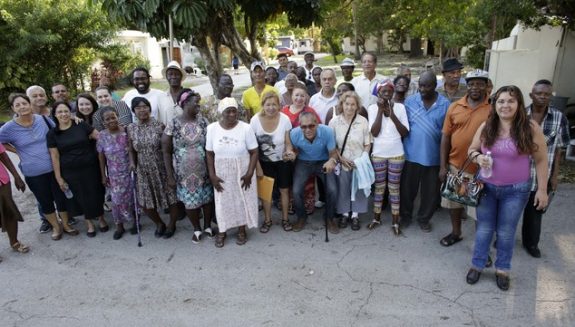

The Little Farm “trailer park,” the DailyMail says, has been home to dozens of Haitians, Hispanics and others for years to decades. In a commentary on this specific closure, attorney and industry finance expert Marty Lavin had this to say: “…real people, in closing manufactured home communities, are financially and emotionally injured, especially the financially fragile folks who live in our land lease communities (LLCs).”
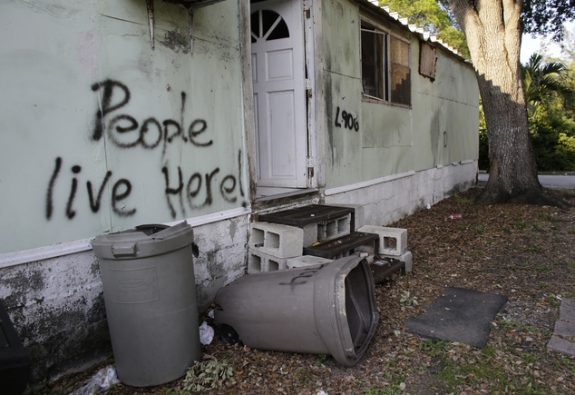
Lavin elaborated. “Whether we like it or not, LLCs have a special obligation. We [community owners] hold ourselves out as a site to buy a HUD Code manufactured home, and invite home buyers to essentially stay forever.”
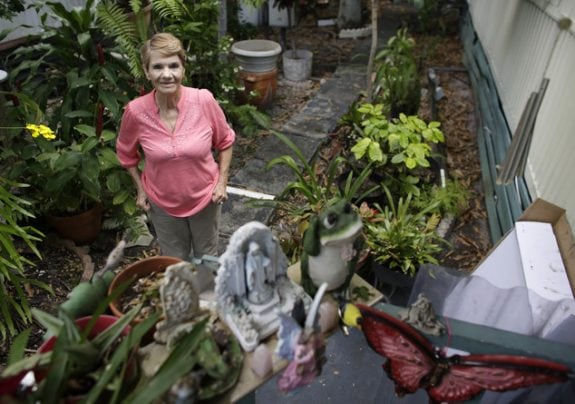
“Then one day, the property reaches renewal, and we chose to sell and send the people out on the street. Because of the fragile people who live with us, sympathy easily arises.”
That sympathy often hits the local or regional news, and contributes to the image issue that the manufactured housing industry faces.
Lavin said that he personally sold two communities he owned to the residents, using the ROC process. Along with Vida Lea Mobile Estates in Leaburg, OR and hundreds of other communities, Lavin’s selling to the residents is an example of preservation, which the Urban Institute study notes is so important for affordable housing preservation across the country. ##
(Image credits are as shown above.)

Article submitted by Joe Dyton, to the Daily Business News, MHProNews.

